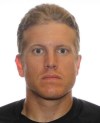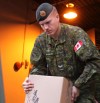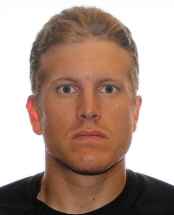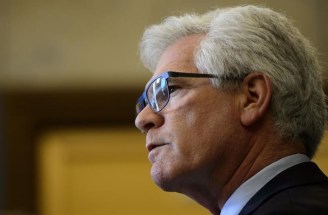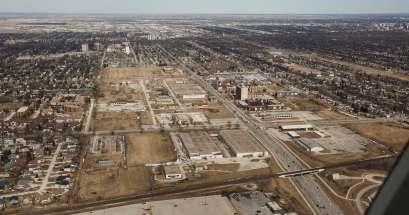No sign of neo-Nazi former soldier Investigation 'ongoing,' but RCMP not looking for Patrik Mathews, who vanished two months ago near U.S. border
Read this article for free:
or
Already have an account? Log in here »
To continue reading, please subscribe:
Monthly Digital Subscription
$0 for the first 4 weeks*
- Enjoy unlimited reading on winnipegfreepress.com
- Read the E-Edition, our digital replica newspaper
- Access News Break, our award-winning app
- Play interactive puzzles
*No charge for 4 weeks then price increases to the regular rate of $19.00 plus GST every four weeks. Offer available to new and qualified returning subscribers only. Cancel any time.
Monthly Digital Subscription
$4.75/week*
- Enjoy unlimited reading on winnipegfreepress.com
- Read the E-Edition, our digital replica newspaper
- Access News Break, our award-winning app
- Play interactive puzzles
*Billed as $19 plus GST every four weeks. Cancel any time.
To continue reading, please subscribe:
Add Free Press access to your Brandon Sun subscription for only an additional
$1 for the first 4 weeks*
*Your next subscription payment will increase by $1.00 and you will be charged $16.99 plus GST for four weeks. After four weeks, your payment will increase to $23.99 plus GST every four weeks.
Read unlimited articles for free today:
or
Already have an account? Log in here »
Hey there, time traveller!
This article was published 25/10/2019 (2236 days ago), so information in it may no longer be current.
The small white house sits on a quiet side street in Beausejour. Grey shingles adorn the roof and an air conditioner juts out from a front window.
Tall trees line the left-hand side of the property across from an empty driveway. A newspaper, wrapped in plastic, sits untouched on the front steps. There’s an untended garden in the backyard near a fire pit.
The home is locked up, the windows drawn. No one answers the door.
“He hasn’t been home since it happened,” a neighbour says. “There’s been no activity.”
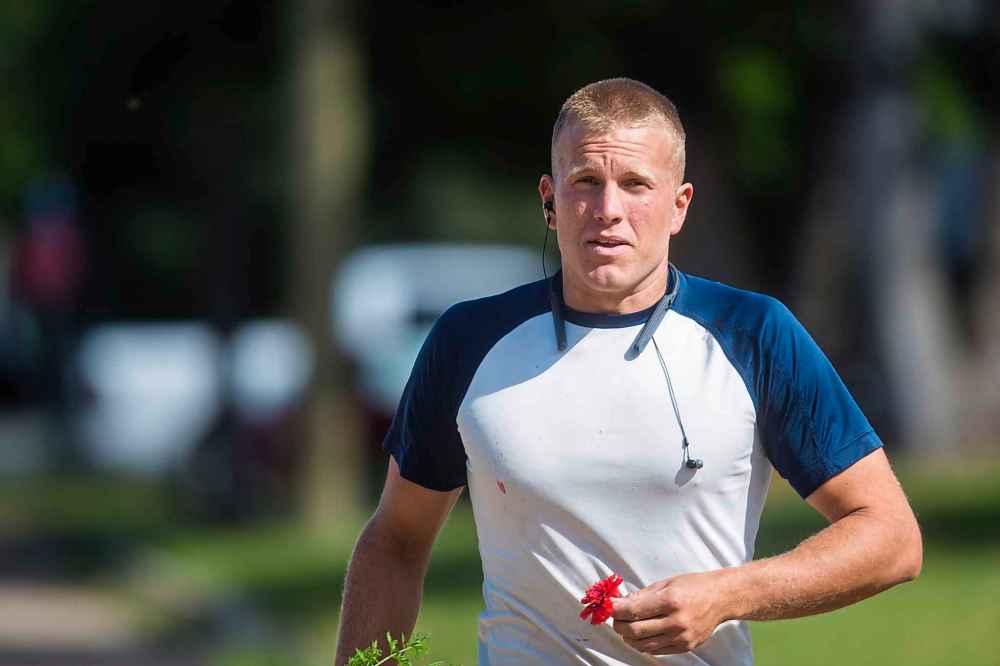
The property belongs to Patrik Mathews, who once led a secret double life as part-time Canadian Army reservist combat engineer by day and neo-Nazi recruiter by night.
Mathews disappeared two months ago, after the Free Press exposed him as a member of a violent paramilitary group. There have been no known sightings of him.
“The investigation is still ongoing and he remains missing at this time. We have no teams actively looking for Mathews, but we continue to do behind-the-scene type investigating,” RCMP spokesman Paul Manaigre said.
The Mounties say they still have Mathews’ firearms, which were seized in a late-night raid of his home on Aug. 19, hours after the Free Press revealed he was behind a recent recruitment drive in Winnipeg for a neo-Nazi group called The Base.
Nothing to report yet: military ombudsman
In July, federal Defence Minister Harjit Sajjan asked Canada’s military ombudsman to investigate racism in the Armed Forces.
In November 2018, an internal military report revealed that during a five-year period 53 members of the Forces had been identified as holding extremist views or being active in hate groups.
In July, federal Defence Minister Harjit Sajjan asked Canada’s military ombudsman to investigate racism in the Armed Forces.
In November 2018, an internal military report revealed that during a five-year period 53 members of the Forces had been identified as holding extremist views or being active in hate groups.
On Friday, a spokesman for the military’s ombudsman said there was no update to provide on Sajjan’s request for a review.
“Our office recognizes the seriousness of the minister’s concerns and the importance of the issue to both our constituents and the institution. We are currently in the scoping and literature review phase of this exercise. No formal investigation has been launched,” the spokesman said.
His truck was found abandoned near the U.S.-Canada border in an area known for illegal crossings a week after he was reported missing.
“The firearms remain in our possession and will continue to do so until such time as the investigation is completed and no offences have been deemed to have occurred. His current whereabouts are unknown but it is possible he is in the U.S.,” Manaigre said.
“The vehicle would have been towed away from the scene and returned to his residence or someone with his family.”
The RCMP says it isn’t aware of any Mathews sightings after he vanished. Extremist researchers and anti-fascist activists say there has been no online activity connected to him since just after he took off.
Evan Balgord, executive director of the Canadian Anti-Hate Network, says Mathews wouldn’t be the first neo-Nazi to drop off the map after being publicly exposed. It’s much easier to do, he says, when you’re plugged into a real-life network of militants — as Mathews was.
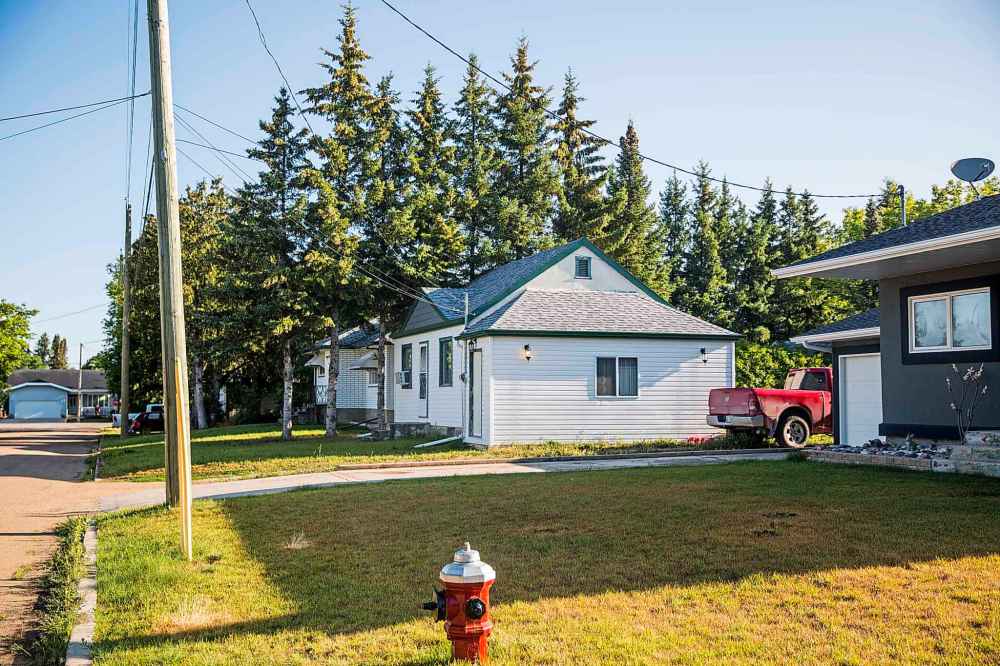
“It’s not the best outcome. Ideally, these people would be held accountable. But there are still positives with them being gone. There are less children being radicalized. Anytime one of these people shuts up is great,” Balgord said.
Mathews was thrust into the spotlight after a month-long Free Press investigation revealed he was active in a group that experts say represents the most violent, radical fringes of the far-right hate movement.
After recruitment posters for the group turned up in Winnipeg, the Free Press reached out to the organization. A reporter posed as a white nationalist, passed through a multi-stage vetting process and was invited to become a member.
The repercussions for Mathews were quick. The Forces — where Mathews held the rank of master corporal and was trained in the use of explosives — expedited his release from military. The Mounties raided his home and the agency’s national security unit investigated his activities.
“It’s not the best outcome. Ideally, these people would be held accountable. But there are still positives with them being gone. There are less children being radicalized. Anytime one of these people shuts up is great.”
– Evan Balgord, executive director of the Canadian Anti-Hate Network
But anti-fascist activist and retired University of Winnipeg sociology professor Helmut-Harry Loewen said the Mathews saga gave him a sense of déjà-vu, including the response from the Armed Forces’ top brass, which he characterized as tepid, at best.
He pointed to the 1991 slaying of Gordon Kuhtey, allegedly at the hands of two Canadian soldiers motivated by hate, as mirroring the situation now with Mathews and other extremists in the Forces.
“In 1993, when then-minister of Defence Kim Campbell was asked about Matt McKay, she repeated his own self-description, which was that his involvement in neo-Nazism was a youthful folly. (Chief of Defence Staff) Jonathan Vance did almost the same thing. He downplayed it,” Loewen said.
“In his big statement after the Mathews case became public, (Vance) said the Canadian Forces are a serious institution and are no place for idiotic hobbies. Those types of statements, that an involvement with Nazism is an idiotic hobby or a youthful folly, are preposterous.”
On June 30, 1991, Kuhtey was taking a walk along the Assiniboine River near the Osborne Street bridge in an area known as the “gay stroll” when he was attacked by four men. Kuhtey was beaten, stoned and thrown in the river. Police did not lay charges until March 1996.
In the meantime, McKay went to serve in the ill-fated United Nations mission in Somalia in 1992, which culminated in a frenzy of violence when an Airborne Regiment (since disbanded) tortured and killed a Somali teenager.
Later, video footage surfaced of McKay using racial slurs and discussing his desire to kill more Somalis.
At the time of the fatal attack on Kuhtey, McKay — as well as the three others charged with him — was alleged to be a member of a neo-Nazi skinhead group. The charges against the men were stayed by the Crown after one of the witnesses was discredited at trial.
During an inquest into the Somalia Affair, it was revealed top CAF brass were complicit in covering up the extremist activity that had transpired under their watch.
Loewen says little has changed in 2019: extremist activity remains a problem and military leadership seems unwilling, or incapable, of addressing it.
“I’m very worried where this will go. You have agencies tasked with public safety who may well be putting Canadians in danger of a possible terrorist attack by their inaction. There is malfeasance here on the part of key Canadian institutions, which is clear by this long arc of inaction,” Loewen said.
Given that inaction during the past three decades, Loewen says he doesn’t have much faith the military will successfully crack down on extremists.
“I’m not sure the top echelons of the military have any interest in being honest about what they know regarding the extent to which racism has penetrated its ranks. I have no confidence when it comes to their ability to root out racists and right-wing extremists,” he said.
“Are we to take their word on it? I’m not sure, since we have no grounds to assess the credibility of the claims they’re making.”
In the meantime, he says, it’d be helpful to get to the bottom of where Mathews is and what he is doing.
ryan.thorpe@freepress.mb.ca
Twitter: @rk_thorpe

Ryan Thorpe likes the pace of daily news, the feeling of a broadsheet in his hands and the stress of never-ending deadlines hanging over his head.
Our newsroom depends on a growing audience of readers to power our journalism. If you are not a paid reader, please consider becoming a subscriber.
Our newsroom depends on its audience of readers to power our journalism. Thank you for your support.
History
Updated on Friday, October 25, 2019 8:15 PM CDT: Fixes typo


